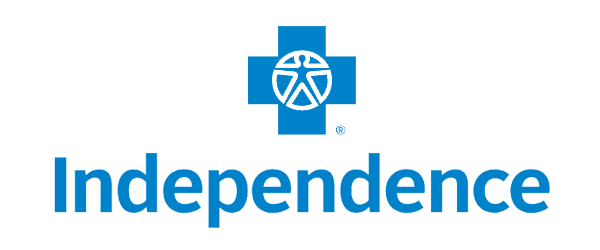Home Programs Detox
Detox
Detox is the first step in recovery from drug and alcohol addiction. Find a detox center near you today. Contact Creekside Recovery Group to get started.
If you have been searching for “medical detox programs near me,” you have come to the right place. Creekside Recovery Network partners with local medical detoxes in Georgia and Florida. Our medical detox programs help adults end their abuse of alcohol, opioids, benzodiazepines, stimulants, and other substances.
Medical detox programs provide both medication and therapy to ease the distress of withdrawal and help people manage any symptoms that are not eradicated by medication.
Completing detox can be a vital first step on the path to long-term recovery. With the assistance of the experienced professionals at Creekside Recovery Network medical detox programs near you, you can rid your body of addictive substances and begin to build a healthier drug-free future.
What is Medical Detox?
Medical detoxification, or detox, is a short-term program that helps people rid their bodies of alcohol and other addictive substances. As the name implies, medical detox programs may offer medication and other medical services to ensure that patients complete the process safely and with minimal discomfort.
When you receive treatment in a medical detox near you, you will be under the care of experienced professionals who are prepared to protect your health and well-being. Then, once you have successfully completed detox, you can transition directly into the next phase of your treatment.
Why Is Medical Detox Necessary?
When a person becomes addicted to alcohol, opioids, benzodiazepines, and other drugs, their body adapts to the presence of these substances. Two results of this adaptation are tolerance and withdrawal:
- Tolerance means that a person will eventually need to use larger amounts of the drug to experience the intoxicating effects that they previously felt after taking relatively small doses.
- Withdrawal means that a person will experience physical and/or psychological distress when they are unable to use the drug, or when they attempt to stop using it.
If a person tries to end their substance use on their own, they may become overwhelmed by the pain of withdrawal. Symptoms such as nausea, vomiting, elevated body temperature, racing heart rate, depression, anxiety, and paranoia can quickly push a person back into active substance abuse. As we will discuss in a later section on this page, some types of withdrawal symptoms can even be life-threatening.
Medical detox programs address the pain and potential dangers of withdrawal. The doctors, nurses, and other personnel who staff medical detox programs near you are familiar with all aspects of the detox process, so they can address any contingencies as they arise.
What is The Detox Process?
When you enter a medical detox program near you, one of your first activities will usually be to complete a thorough physical examination. Your treatment team will also collect some information from you about your substance use history, prior treatment experiences, and other relevant matters.
The information that’s gathered during your assessment will help your team determine which medication or medications may be most appropriate for you while you are in detox.
The detox process varies depending on which drug you have become addicted to. It can also be influenced by how long you have been abusing the drug and how much of the drug you have been using.
With those factors in mind, your body will usually begin to develop withdrawal symptoms within six to 24 hours after your last dose of the substance. Symptom intensity typically peaks within three to five days, after which it begins to slowly subside. The duration and severity of symptoms will depend on the nature of your addiction and the amount and frequency of your substance use.
During detox, your treatment team will monitor your progress and provide medications and other medical services as necessary. You may also receive therapeutic support to help you manage symptoms that are not alleviated by medication.
Once your withdrawal symptoms have subsided to the point that you are stable and capable of fully engaging in therapy, you can transition out of detox and into a residential or outpatient program.
Find Help Now.
At Creekside Recovery Group, we believe that long-term recovery is possible. Our practical programs can help you and a loved one
Drugs That Require Medical Detoxification
The following are examples of substances that often require medical detoxification to help people get through withdrawal safely and with minimal discomfort:
Alcohol
Alcohol use is quite common in the United States and in many other nations. This familiarity has caused some people to mistakenly believe that alcohol is somehow “safer” than other addictive substances, and that it is easier to quit drinking than it is to stop using other drugs. Both of these beliefs are sadly mistaken.
The truth is that alcohol withdrawal can be one of the most dangerous types of withdrawal. In certain extreme cases, particularly among people who have been drinking heavily, alcohol withdrawal can trigger the onset of a condition that’s known as delirium tremens, or DTs. In the absence of professional treatment, experts estimate that the fatality rate of delirium tremens may be as high as 37%.
More: Alcohol Detox
Opioids
The intensity of opioid withdrawal is one of the reasons why people have such a difficult time ending their opioid use once they have developed an addiction. Opioid use disorder can involve a variety of substances, including heroin, morphine, fentanyl, and many prescription painkillers. Withdrawal from any of these opioids can involve symptoms such as the following:
- Nausea, vomiting, and diarrhea
- Abdominal cramping
- Pain in muscles and bones
- Fever, chills, and heavy perspiration
- Anxiety
- Depression
Benzodiazepines
Lorem ipsum dolor sit amet, consectetur adipiscing elit. Ut elit tellus, luctus nec ullamcorper mattis, pulvinar dapibus leo.
Stimulants
This category can include legal substances such as Adderall and Ritalin as well as illegal drugs such as cocaine and methamphetamine. During stimulant detox, you may experience both physical and psychological symptoms, which can include the following:
- Extreme fatigue
- Slowed speech patterns and movement
- Aches throughout your body
- Chills
- Dehydration
- Anxiety and irritability
- Dysphoria (general dissatisfaction with life)
- Depression
- Memory problems
- Suicidal ideation
Psychedelic Drugs
Psychedelic drugs such as lysergic acid diethylamide (LSD) typically don’t cause painful physical withdrawal symptoms. But ending your use of psychedelic substances can trigger various types of psychological distress, including the following reactions:
- Extreme mood swings
- Anxiety
- Depression
- Panic attacks
- Psychosis
Medications Used to Detox
A medical detox program near you may use a variety of medications to help people complete detox. The medication a person receives will depend on which substance they have been abusing and what types of withdrawal symptoms they have developed.
People who are in detox for an opioid addiction may receive one or more of the following medications:
- Methadone
- Buprenorphine
- Naltrexone
- Naloxone
- Acamprosate
- Chlordiazepoxide
- Diazepam
- Disulfiram
- Lorazepam
- Naltrexone
Benzo withdrawal symptoms are often treated with flumazenil, selective serotonin reuptake inhibitors (SSRIs), and clonidine.
People who are completing detox for psychedelic drugs may receive antidepressants, antipsychotics, or other medications depending on what types of psychological withdrawal symptoms they have developed.
How Long Does Detox Last?
The amount of time it takes to complete detox can vary depending on a variety of individual factors. In some cases, a person may only need to be in a detox program for three to five days. In other cases, detox can take a week or longer.
It is also important to realize that some withdrawal symptoms can persist for weeks or even months after a person has completed detox. These symptoms will not be as intense as the acute distress that a person can experience in the early days of withdrawal, but they can have a negative impact on the individual’s quality of life.
The potential persistence of long-term withdrawal symptoms is one of many reasons why people need to participate in additional treatment after completing detox. Residential care, partial hospitalization programs (PHPs), intensive outpatient programs (IOPs), and outpatient treatment can all help people learn how to manage enduring withdrawal symptoms.

Medically Reviewed
Erika Dalton, LMSW
Erika Dalton, LMSW is a Licensed Master Social Worker and Director of Quality Control at Creekside Recovery Group
Facility Image Gallery
Find Medical Detox Near You
If you have been seeking medical detox near you, Creekside Recovery Network may be able to help. The facilities in our network offer medical detox at several convenient locations.
When you are ready to end your drug use and begin to build a healthier future, Creekside Recovery Network is here for you. Contact us today to learn more.










 Now that I have completed my successful journey here I would like to say that throughout it I was treated with nothing but respect. To take that a step further, I felt as if I was being treated by family.
Now that I have completed my successful journey here I would like to say that throughout it I was treated with nothing but respect. To take that a step further, I felt as if I was being treated by family.







